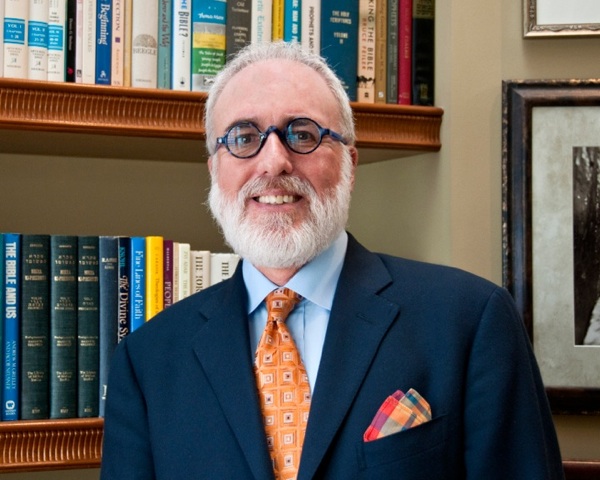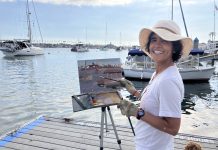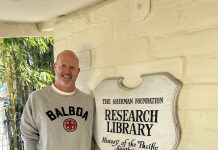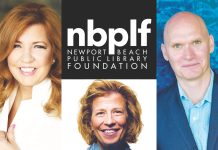
“Never mistake knowledge for wisdom. One helps you make a living; the other helps you make a life.” – Sandra Carey
Rabbi Mark Miller is retiring today after 35 years as the spiritual leader of Temple Bat Yahm, having led the congregation from its small beginnings to its position as one of the premier Reform Jewish synagogues in Southern California.
“I’m becoming rabbi emeritus and senior scholar,” he explained. “I will still offer sermons and classes, but on a limited basis. I will become more of an elder statesman.”
We talked about wisdom.
“Our superficial society confuses knowledge, intelligence and IQ with true wisdom,” he said. “Being an expert in something does not make you a wise person. Human nature changes at a glacial pace while everything else changes at the speed of sound and light, so we have a lot of catching up to do.”
I asked if he wanted the opportunity to share some pearls of wisdom he has gathered over the decades. He readily agreed. Here they are:
– Change starts from the inside out. “Everybody talks about changing the world, but nobody talks about changing themselves,” Miller began. “In order to change what is outside of you, you have to examine yourself and resolve to change your inner being first.”
– This too shall pass. “All the experiences and situations we think are so burdensome have a way of going by, and later we wonder why they were so worrisome,” he added. “We would do well to not focus so much on what is peripheral and ephemeral and more on what is central and eternal.”
– The two most important things in life are character and relationships. “I know this because those are the two aspects of living that we carve into a tombstone to summarize a person’s life,” he explained. “Shouldn’t those, then, be our main concern while we have life? We should cultivate character and strengthen relationships here and now.”
– Personal Responsibility. “We live in a society that shifts blame,” Rabbi Miller said. “It’s always someone else’s fault. We have gotten away from absolute ethics; everything is relative and situational. Instead of The Ten Commandments, we have The Ten Suggestions. We make excuses rather than own up to our own responsibility for what we have done to our world, and for what we can do on behalf of our world…Everything is about privilege, not responsibility, about my rights, not my obligations; how long can a society exist like that?”
Miller explained the difference between hope and optimism about people changing in the future.
– Reason for hope. “Optimism is superficial while hope is much deeper. I am not optimistic,” he explained. “But I have hope because man is created as a soul that has a body, rather than a body that has a soul. If we recognize the image of God in others, seeing people as both body and soul, and if we relate to people as representatives of God, then we create a better world. Because I know people who do recognize the image of God in others, it gives me hope.”
– Every action has consequences. “There’s a wonderful old Jewish teaching that says we should view all of our deeds, good and bad, as evenly balanced on the divine scale and your next deed tips the scale one way or the other,” Miller continued. “It may be your last deed. I want to appear before God with a preponderance of good deeds. We have to always be conscious of what we do next because that deed might decide everything.”
– Free will. “God’s greatest gift to us is free will,” Miller added. “I can choose my next moral decision, and it will have consequences. God has given me something no other creation has, and that is free will. I have a conscience. I have God’s Word in the Torah to guide me. I have a blueprint; there it is in black and white. I have no excuse. It’s up to me. ”
– God’s will. “I always say, ‘God willing,’ about the future because I’m not in control,” he said in closing. “I’m not in charge …I always say, ‘ I’ll see you tomorrow, God willing.’ I say ‘God willing’ 100 times a day…I recognize that I am in God’s hand; there is a Creator, and I am the creation. God doesn’t owe me tomorrow or my next breath, everything is a gift, and everything is on loan. God lends life to me at birth as a sacred trust, and one day He will redeem the loan. In the meantime, God wants me to use the gift wisely.”
For more information, go to www.tby.org. Cindy can be reached at cindy@newportbeachindy.com.




